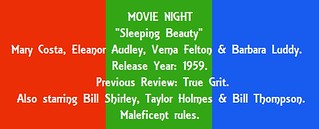Cast:
Gregory Peck (Jimmy Ringo), Helen Westcott (Peggy Walsh), Millard Mitchell (Marshal Mark Strett), Jean Parker (Molly), Karl Malden (Mac), Skip Homeier (Hunt Bromley), Anthony Ross (Deputy Charlie Norris), Verna Felton (Mrs. August Pennyfeather), Ellen Corby (Mrs. Devlin), and Richard Jaeckel (Eddie) Directed by Henry King (#1687 - O Henry's Full House)
Review:
On July 14, 1882, a body was found in the Arizona Territory with a gunshot in the head. It was revealed to be an outlaw associated with various cowboys in Cochise County along with Tombstone and people such as Wyatt Earp. It was none other than Johnny Ringo. The real Ringo was a pretty cut-rate killer, but the Ringo for this film is vastly different, and for good reason. The film was written by playwright/sometimes screenwriter William Bowers and William Sellers, as based on a story by Bowers and Andre de Toth (a steady director in his own right, such as Westerns), albeit with uncredited contributions by producer Nunnally Johnson (a playwright in addition to producing and writing films, most notably The Grapes of Wrath [1940]) and apparently Roger Corman. Corman, who worked as a messenger at Fox, was so annoyed at his suggestions being used without getting credit, soon left Fox for study at the University of Oxford. Anyway, this was the first film done in the 1950s for its director King, who had been working consistently since 1915 in a variety of genres that spanned from the original Stella Dallas (1925) to Twelve O'Clock High (1949). Fans of the Western will recognize parts of The Shootist (1976) that sure seem to have been inspired by this film (an old, famed outlaw coming into a town and seeing familiar faces). John Wayne, who starred in that film, apparently had a motivation to want the lead part for that film because of the fact that he had rejected starring in this film because of its initial starting point being at Columbia Pictures (as headlined by an executive he hated). Incidentally, Bowers stated that he had wrote the film with Wayne in mind but when approached by Wayne, he rejected selling it to him in favor of shipping it elsewhere (which resulted in more money but also the enmity of Wayne).
There are plenty of Westerns about people with the hands to match with anyone when it comes to gunfighting, but you don't get as many in terms of interesting looks at the people who wish the attention would just end. It starts, interestingly enough, with a gunfighter shooting someone in defense in which we don't see their hands when it comes to that fateful gunshot. It is an efficient 85-minute movie that feels like it is occurring in real time when it comes to the tension that lies within trying to stay in town when others only a tool of confrontation. The choices matter most of all in this Western rather than grand landscapes or big towns when one man arriving into town is an event on itself. Sure, one could wonder what the film would be with Wayne, but Peck (drabbed in a period-looking moustache and all) erases those doubts with an efficient performance that is imposing to go along with a semblance of pity that reminds one of seeing an old alley cat; it may not surprise you to know that this was one of six films Peck did with King. He does so well with the film that he sells that fateful final scene (establishing just who really shot who to death) with all of the punch it is worth in expressing the "known gunfighter". Mitchell provides the ideal side of the coin in terms of reformed men with just as much dignity when matched with Peck for a solidly reliable performance. The rest of the cast is pretty good, with Malden being the most enjoyable in terms of character presence (he was in the original Broadway production of A Streetcar Named Desire), although Homeier's smarmy dandy presence is a suitable antithesis to Peck when it comes to opportunism that can be slapped away just as easily. The tension comes not in wondering if you are going to get some sort of, well, gunfight but instead comes from the tension of wondering just what will happen to our lead in his quest for some sort of fulfillment that doesn't involve a gun. It sure is packed with elements that make one seemed as trapped in a manner that might make you think you were in a noir. In the end, there is plenty to enjoy in terms of a solid cast and atmosphere that executes on a level worth every moment in the art of choices made through a gun in a frontier starved for attention.
Overall, I give it 9 out of 10 stars.





